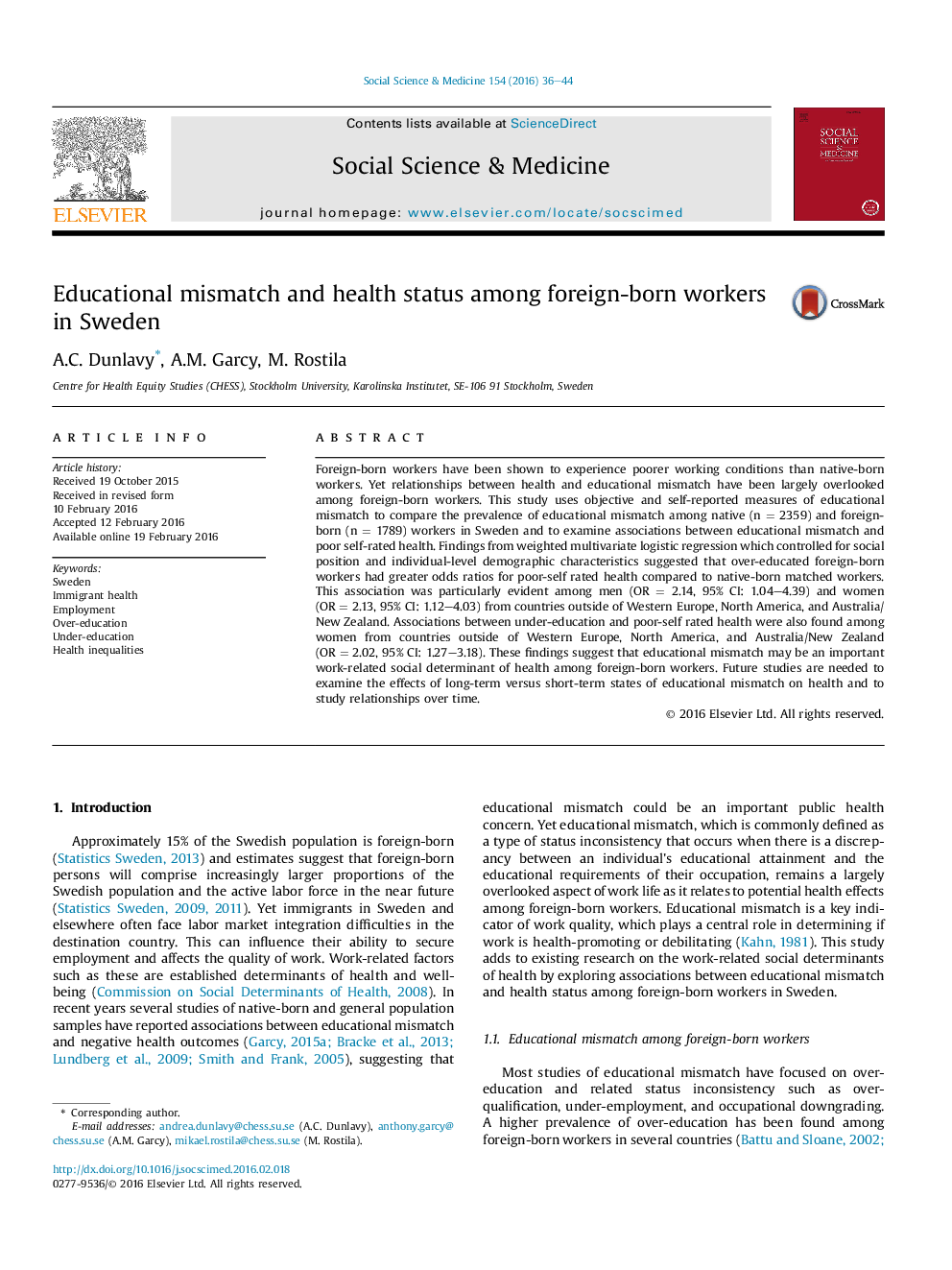| Article ID | Journal | Published Year | Pages | File Type |
|---|---|---|---|---|
| 952218 | Social Science & Medicine | 2016 | 9 Pages |
•Associations between educational mismatch and poor self-rated health were examined.•These associations were compared among foreign-born and native-born workers.•Both objective and self-reported measures of educational mismatch were used.•Over-education was associated with poor health among foreign-born workers.•Under-education was associated with poor health among some foreign-born women.
Foreign-born workers have been shown to experience poorer working conditions than native-born workers. Yet relationships between health and educational mismatch have been largely overlooked among foreign-born workers. This study uses objective and self-reported measures of educational mismatch to compare the prevalence of educational mismatch among native (n = 2359) and foreign-born (n = 1789) workers in Sweden and to examine associations between educational mismatch and poor self-rated health. Findings from weighted multivariate logistic regression which controlled for social position and individual-level demographic characteristics suggested that over-educated foreign-born workers had greater odds ratios for poor-self rated health compared to native-born matched workers. This association was particularly evident among men (OR = 2.14, 95% CI: 1.04–4.39) and women (OR = 2.13, 95% CI: 1.12–4.03) from countries outside of Western Europe, North America, and Australia/New Zealand. Associations between under-education and poor-self rated health were also found among women from countries outside of Western Europe, North America, and Australia/New Zealand (OR = 2.02, 95% CI: 1.27–3.18). These findings suggest that educational mismatch may be an important work-related social determinant of health among foreign-born workers. Future studies are needed to examine the effects of long-term versus short-term states of educational mismatch on health and to study relationships over time.
